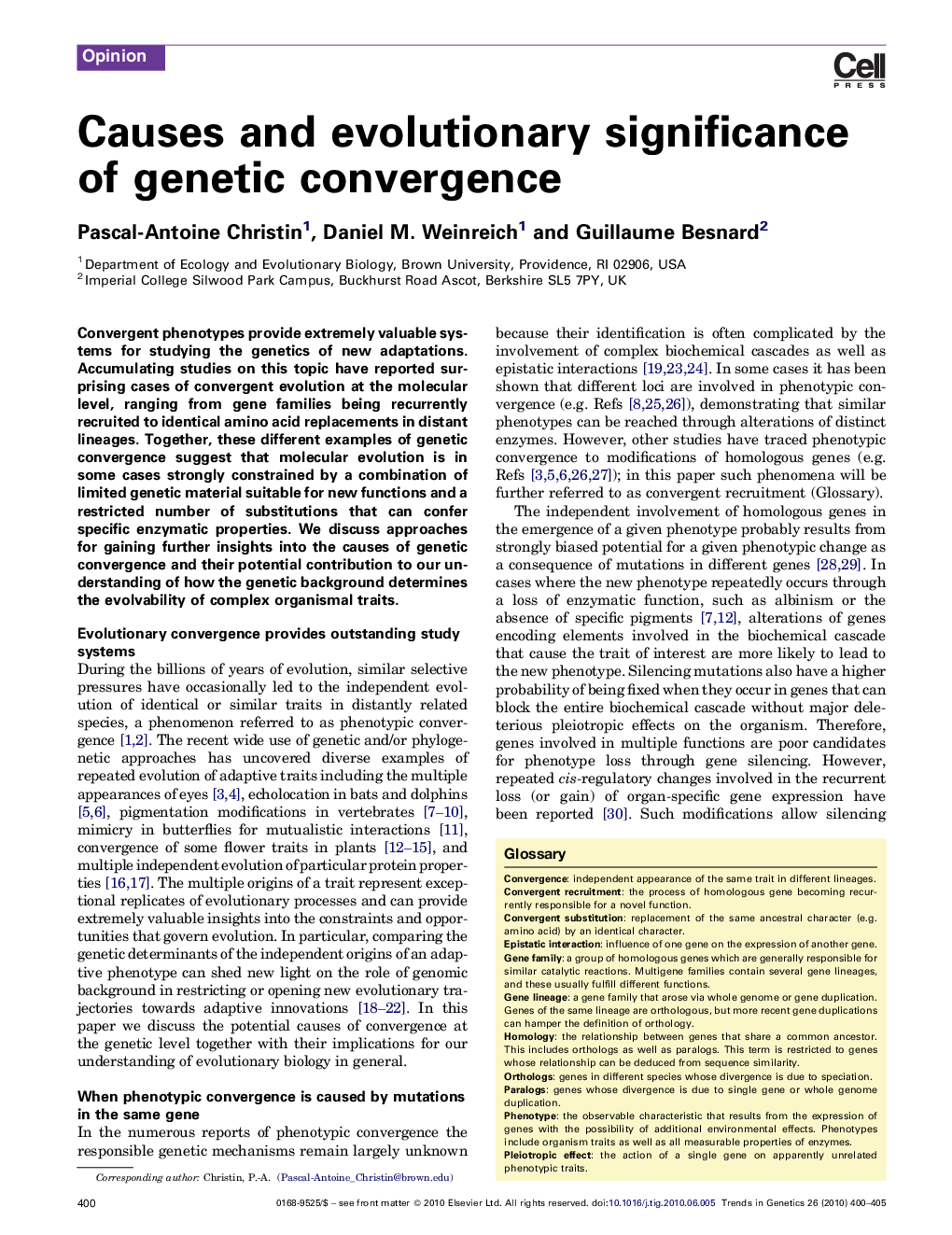| Article ID | Journal | Published Year | Pages | File Type |
|---|---|---|---|---|
| 5913163 | Trends in Genetics | 2010 | 6 Pages |
Abstract
Convergent phenotypes provide extremely valuable systems for studying the genetics of new adaptations. Accumulating studies on this topic have reported surprising cases of convergent evolution at the molecular level, ranging from gene families being recurrently recruited to identical amino acid replacements in distant lineages. Together, these different examples of genetic convergence suggest that molecular evolution is in some cases strongly constrained by a combination of limited genetic material suitable for new functions and a restricted number of substitutions that can confer specific enzymatic properties. We discuss approaches for gaining further insights into the causes of genetic convergence and their potential contribution to our understanding of how the genetic background determines the evolvability of complex organismal traits.
Related Topics
Life Sciences
Biochemistry, Genetics and Molecular Biology
Genetics
Authors
Pascal-Antoine Christin, Daniel M. Weinreich, Guillaume Besnard,
